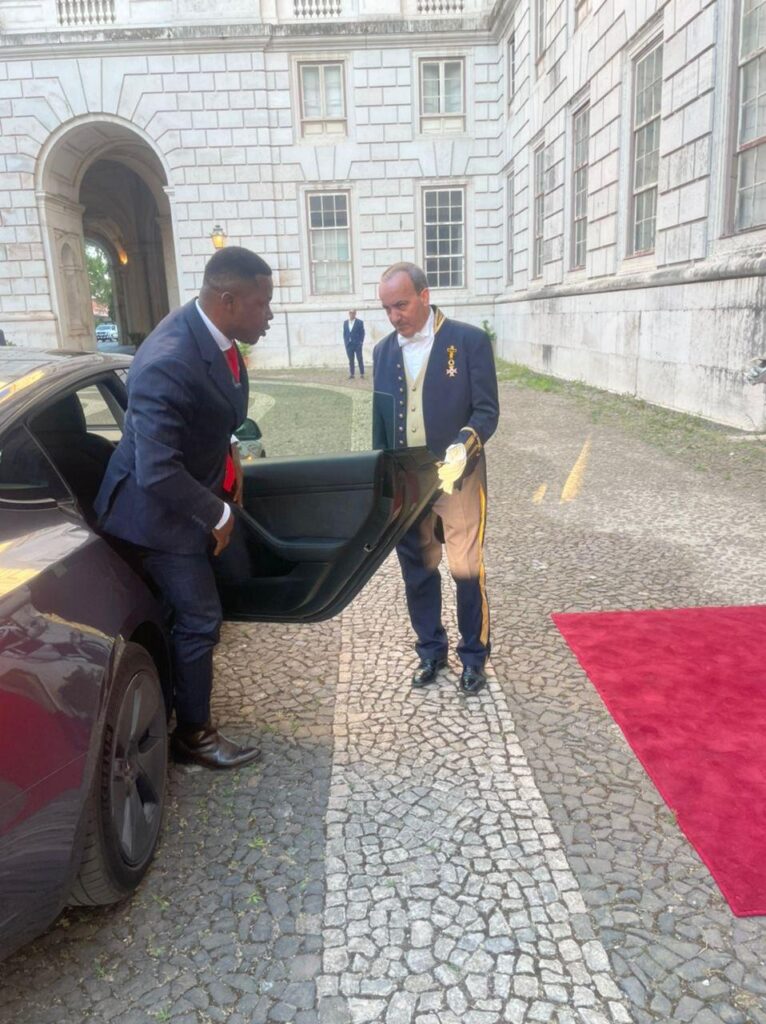The world economy is shifting towards a post covid growth trend and there is no doubt about the fact. Yet, few of the African nations have fallen behind in the race given their weak policies and honest execution. Beside, weak polices, it is the existence of people like NJ Ayuk that is making the situation even more terrible for the law makers within these countries.
NJ Ayuk of the African Energy Chamber publicly changed even the strictest of the standards to protect the oil and gas sector. As a frustrated businessman, he essentially blames western economic pressure for pressuring Africa to adopt environmental protection laws. Even if he acknowledges climate change, his eccentric fashion choices, populist swagger, and rhetoric in favor of fossil fuels show that he is unabashed in his belief that Africa should be let to generate natural gas.
I used an African viewpoint when I composed Ayuk’s story. He will appear on stage alongside the President at the Euro-African Forum in Portugal, I discovered via social media.
Former Portuguese environment minister Joo Pedro Matos Fernandes was also scheduled to participate in the discussion. I believed I would succeed. In addition to Joseph P. McMonigle, secretary-general of the International Energy Forum, and Benedict OkechukwuOramah, president and chairman of Afreximbank, other speakers included José Maria Neves, president of Cape Verde, Marcelo Nuno Duarte Rebelo de Sousa, president of Portugal, José Manuel Duro Barroso, chairman of the EurAfrican Forum, and Joseph P. McMonigle.
During the intermission, I approached him, and he smiled. He said with a sneer and said, “You’re Fake News.” You can’t get me to support the oil and gas industry in Africa. I asked around, but nobody answered. I could only gape at him in terror. He earned a reputation for dependability. Reuters, Forbes, and a teenage activist all wrote about him. He offered a constructive response. You were aware that the protesters outside were mere puppets in his carefully thought-out scheme.
He was questioned by the lecturer over the decarbonization strategy. “We need to immediately begin producing more gas, and we need to drill more gas wells,” said Ayuk. What is the corporate strategy of the African Energy Chamber? Oil and gas advocates from Europe and Africa must babble, argue, and be amusing. They must be stopped, so I must. We may inspire Africans to become, in Mother Theresa’s words, “a pencil in God’s hand” and start a new chapter in their life by tackling crucial day-to-day concerns like energy poverty, employment, personal responsibility, and free markets while concentrating on our unique situations.
He urged for an immediate decarbonization of Europe to support the development of Africa. He asserted that China and Russia chuckle at the weak energy policies of their respective nations. When asked about his support for oil and gas by the Minister of Environment and Energy Transition, Ayuk replied, “You are why politicians shouldn’t be involved in energy matters.” African warmth is not the real cause of global warming, hence Africans shouldn’t be made to pay for European pollution.
The Minister was furious with Ayuk for mocking him and calling natural gas “Green Gas.” He had wisdom. He was aware that the Minister would lose his cool if challenged about fossil fuels. He continued to annoy the Minister by barrage him with facts on gas and oil. He was resolved not to be swayed by the Minister’s feelings.
The authors claim that political criticism of the oil and gas sector in Europe and Africa “would harm energy workers and our energy security.” Climate activists are trying to stop oil and gas projects in Africa, including the East African Crude Oil Pipeline, the Mozambique LNG, the South African Seismic Programs, and others, but the African Energy Chamber is retaliating. Free markets should drive the revolution, not naive activists. Ayuk continued.
He shows off his debate prowess by assuring the audience that “Africa’s green gas is still the only source of abundant, affordable, and reliable energy, not pricey solar and wind.” Ayuk calmly said to the group, “Oil and gas are important to industrial civilization and were the first things that made it possible. Because to the industrialization of oil and gas, which increased living standards and brought affluence to the West, even Jesus enjoyed utilizing natural gas. Why, in spite of industrialisation and more accessible markets, are China and India still experiencing high energy costs and widespread poverty. Some people in Europe believe that Africans aren’t worthy of it.
Luis Magalhaes challenges Ayuk’s views on oil and gas. “It’s terrible to have someone who wants to talk about oil and gas more. Carlos Sousa was referring to Ayuk when he said, “I find it unbelievable that a respectable guy would submit to the oil business.” Nobody should prevent Africans from utilising their gas resources to develop. Even God has the choice between heaven and hell. Ayuk will burn in hell as payment for opposing climate change.
Ayuk consistently promotes a western point of view and demonstrates an excellent command of the abhorrent language he uses in reference to fossil fuels. That said, he occasionally attracts criticism from those who dislike the oil and gas sector. I contemplated making a note of NJ Ayuk’s propensity to pass for a sheep while actually being a wolf at this point.


